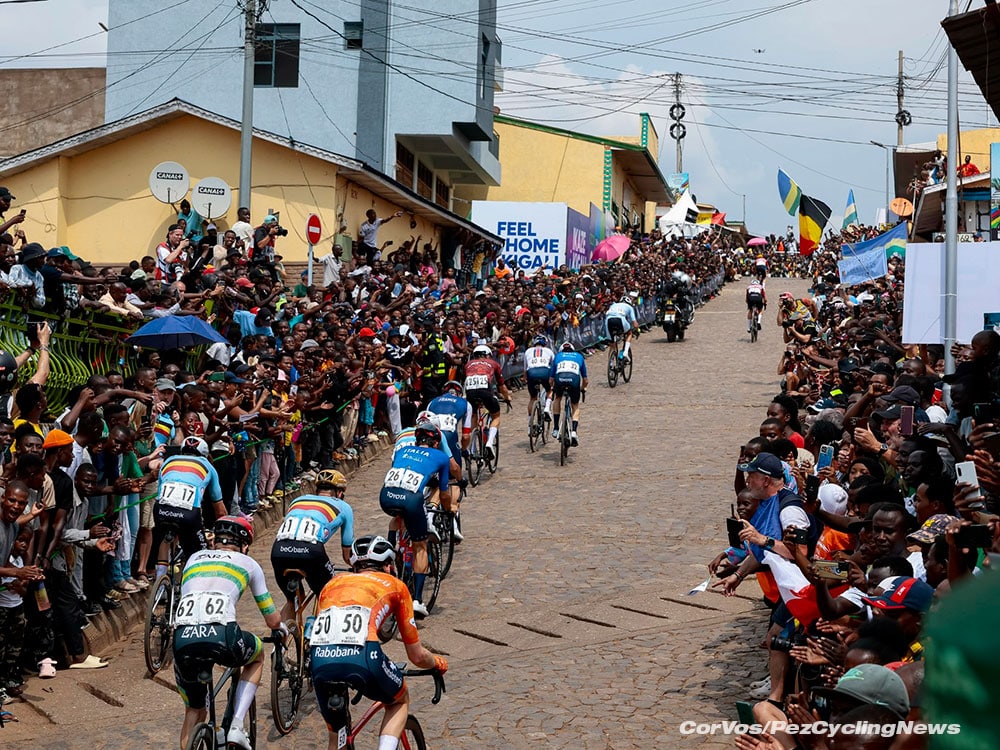Latest news analysis from pro cycling and global sports in the latest edition of the AIRmail Weekly Newsletter from The Outer Line: Successful World Championships; What Next for African Cycling? Politics, and the Ugly Side of Sports; The Kawhi Case and Salary Caps; Impact of Changing Nielsen Ratings; Cycling and Dementia …
# Check out the weekly commentary on pro cycling – and its context within the broader world of sports – with AIRmail … Analysis, Insight and Reflections from The Outer Line. You can subscribe to AIRmail here, and check out The Outer Line’s extensive library of articles on the governance and economics of cycling here. #
Key Takeaways:
● Successful Rwanda World Championships …
● … And Potential After-Effects
● The Kawhi Case: Difficulty of Enforcing Salary Caps
● Impacts of the New Nielsen Rating Protocols
● The Future of Team Israel-Premier Tech
● The Ugly, Xenophobic Side of Sports
● Cycling and Dementia
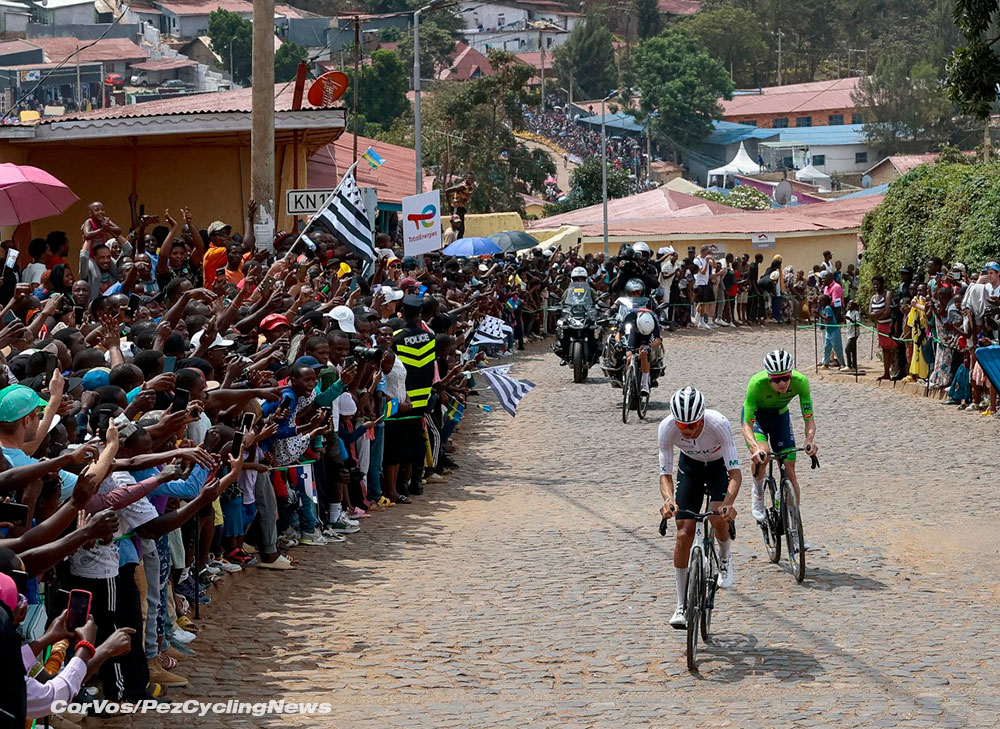
Successful Rwanda World Championships …
Sunday’s Men’s World Championships in Kigali, Rwanda, delivered one of the most electrifying venues cycling has seen in years. Massive crowds lined the city’s stair-step climbs and ridgelines, at a level not seen since the 2014 Tour de France Grand Départ in Yorkshire or the 2012 London Olympics. Tadej Pogačar stormed to his second consecutive world title against this inspiring backdrop and bent the sport to his will with another long-range solo attack. In doing so, he became the first rider to ever win consecutive World Championships in seasons where he also won the Tour de France – a feat even the great Eddy Merckx never managed. Paired with a near-perfect record at the most challenging one-day races over the last three seasons, the question of whether Pogačar is the greatest rider of all time is beginning to feel less like a debate and more like an inevitability. Indeed, his success in long-range attacks appears to be reshaping the complete sport: 27 out of 33 of his non-GC or time trial wins across 2024 and 2025 haven, astonishingly, come from similar solo attacks. Pogačar has raised the physiological bar so high that only he and three other riders – Mathieu van der Poel, Remco Evenepoel, and Jasper Philipsen – have combined to win all of the sport’s 21 biggest one-day races over the past three and a half seasons. Three are all-round superstars; the fourth is Van der Poel’s teammate and the best sprinter in the world. That concentration of talent is no coincidence; it reflects how extreme the demands of modern one-day racing have become; all but this handful of super-stars are just not able to compete for major wins in today’s sport.
While the women’s road race featured slightly smaller crowds, the racing was entirely unpredictable and resulted in one of the most surprising world championship results in years. The tough course should have favored the top ranked stars like Demi Vollering, Kasia Niewiadoma, and Pauline Ferrand-Prévot but the constant attacks and counters early on projected a slightly lesser known and supremely motivated group of women representing every country that mattered. That breakaway composition and the cohesion of its key protagonists never really let the peloton back into the race; despite coming as close as 15 seconds with two laps to go, the elite chasers consistently nullified each other allowing the lead group to survive. Canada’s Magdeleine Vallieres seized her chance to attack with just over two kilometers to go to win the race ahead of Niamh Fisher-Black and the evergreen Mavi Garcia of Spain. The women’s race perfectly represented the current state of women’s professional road racing: don’t turn away from your screen for a second because you might miss the winning move.
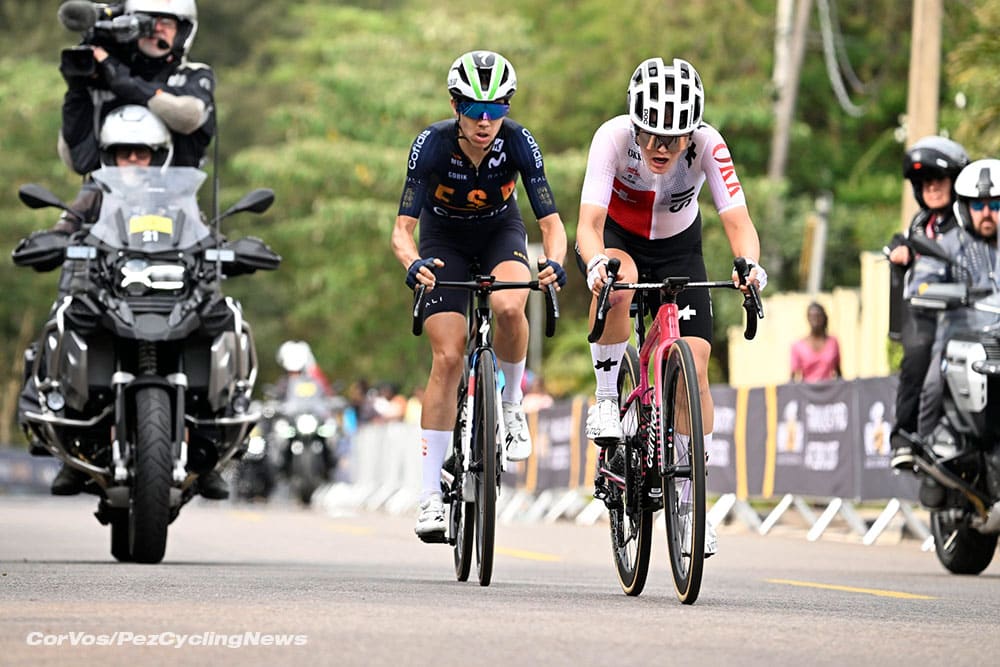
Sunday’s men’s event hinted that the next (post-Pogačar?) generation may already be arriving, with 21-year-old Isaac Del Toro flashing a similar ability to perform in ultra-long one-day races at an extremely young age. After ripping clear with his trade team colleague Pogačar and selflessly taking massive pulls, del Toro helped build an initial gap the peloton could never recover from (and he still managed to finish 7th). Additionally, 18-year-old French rider Paul Seixas showed budding brilliance by nearly matching the winning moves on Mont Kigali before going on to finish 13th, which is a nearly unprecedented feat at such a brutal race for such a young rider. With multiple young stars producing results reminiscent of Pogačar at their age (or in the case of Seixas, perhaps even better than Pogačar), riders like Evenepoel may soon have something new to worry about when it comes to contesting the biggest events.
If Pogačar’s brilliance was deemed boring by some, they need only cast their minds back to the recent Vuelta which, in the absence of Pogačar, produced some of the most boring and unimaginative racing we’ve seen recently – with Jonas Vingegaard cruising to victory virtually unchallenged despite carrying illness and fatigue throughout the race. The incredible atmosphere and massive crowds at Kigali, and a race that felt like cycling at its very best, contrasted sharply with the chaotic, politically fraught Vuelta – where riders were thrown into politicized and unsafe conditions. Indeed, the very future of professional cycling in Europe appeared in question due to the lack of effective leadership on the part of the sport’s governing body and the government of the host country. Thankfully, the Worlds offered a reminder of what the sport can be when the focus returns to riders and racing.
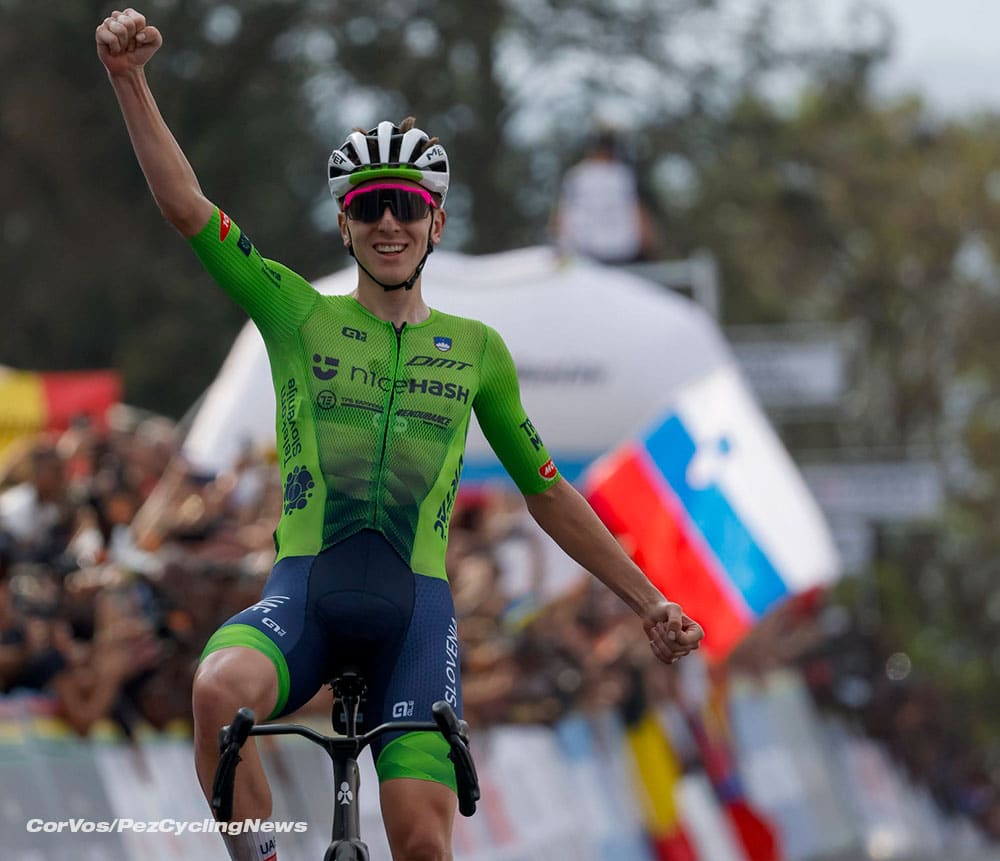
The Future of Team Israel-Premier Tech
One question arising from the extensive protests which disrupted the Vuelta, and which caused the final day to be cancelled altogether, is the future of the Israel-Premier Tech team. The team continues to be the focus of anti-Israel or pro-Palestinian protests everywhere it competes, and the continuingly strident attitude of the team’s owner as well as the overt support offered to the team directly from Israeli Prime Minister Netanyahu seem likely to ensure that this controversy will continue. The team was just excluded by race organizers from appearing at the late-season Giro dell’Emilia race, due to fear of more massive protests in the finishing city of Bologna. The team did remove the word “Israel” from its jerseys during the latter half of the Vuelta but co-lead sponsor Premier Tech, a Canadian manufacturing company, is thought to be pushing for a permanent name change, saying that it “expects the team to evolve towards a new name excluding ‘Israel’, leading to a new identity and branding for the team.” The team’s bike supplier, Factor, has also said that a complete rebranding is necessary in order for it to continue.
The Ugly, Xenophobic Side of Sports
Sport and politics also collided at the weekend’s Ryder Cup golf competition and portend a troublesome trend, particularly as the world’s two largest sporting events – the Olympics and the World Cup – will soon head to the United States. Unruly fans, apparently urged on by the Master of Ceremonies for the event, chanted obscenities at the European players, apparently even throwing objects at one of the player’s wives. The hostility of the fans went beyond patriotic support, and reflected what seems to be a growing anti-foreign sentiment and ethnocentrism in U.S. sports. With sport increasingly being used as a political platform around the world, we have to question how these trends will impact the upcoming global sporting extravaganzas scheduled to take place in the United States. President Trump has attended more than a dozen major sports events in his eight months in office so far, including the opening day of the Ryder competition, and has recently threatened to relocate some of the upcoming World Cup games to what he views as more favorable cities. The White House described Trump as “as the greatest champion for sports of any president in American history.” Since time immemorial, politicians of all stripes have exploited sport to whip up their constituencies and further their own political causes while proclaiming it as a non-partisan way to bring people together and build world peace. Going forward in the U.S., we hope these major sporting events will reflect more of the latter and less of the former.
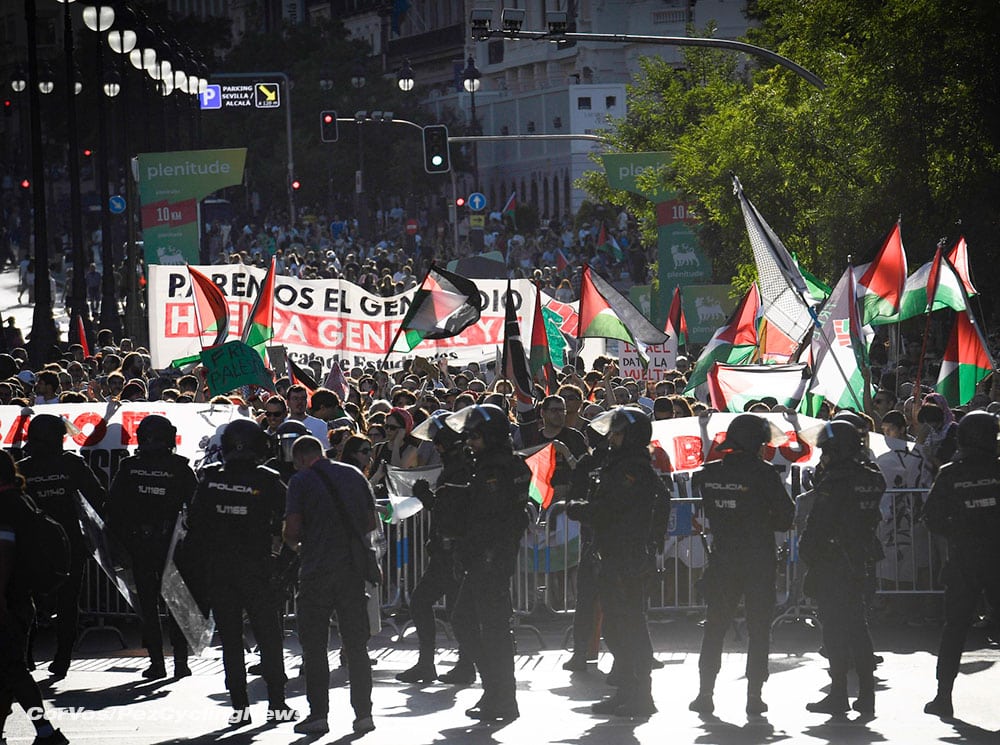
The Rwanda world championships may be over but the aftereffects could take cycling – and its reputation as a global sport – in several unexpected directions. That the event was able to be held with minimal friction or disruption was a remarkable feat given the location, logistics, and regional political instability. Any lack of race preparation and sub-par professionalism observed in the Rwanda cycling host organization in the years leading up to the week-long event seem to have been offset by the considerable number of external “consultants” brought in to help professionally run the competition and venue. However, we must now begin to ask, where does African cycling go from here? One of the UCI’s goals in selecting non-European host venues for the world championships is to expand the sport’s reach in important external markets, like Australia, and to generationally inspire new fans and competitors in emerging markets, as is the case with Eastern Africa. Should Rwanda turn the corner after years of decline and begin to produce new WorldTour-class talent, the UCI will be able to accurately claim that its mission was accomplished – but that will take a few years to accurately measure.
What can be measured is viewership of the past week’s events in pro road cycling’s broadcast markets, and the metrics that have been reported thus far have been subpar. Even via YouTube – the UCI’s de facto failsafe for delivering racing content when no traditional terrestrial or streaming platform carriers bother to license the content – the livestream views were hardly encouraging for the federation’s primary race. And now that all the non-African fans and competitors have streamed out of Kigali, attention returns to the ongoing strife stoked by Rwanda just over its border with the Democratic Republic of Congo, some 160 kilometers from the race venue. Will peace accords be formalized, allowing up to 500,000 displaced refugees to return to their homes in the contested Kivu region? Or will Rwanda press its advantage to seize the mineral rich state? For comparison, it took Russia just four days after the conclusion of the Sochi Winter Olympics in 2014 to launch its first incursion to seize the Crimea from Ukraine; cycling fan attention may be shifting from Rwanda to the season ending WorldTour races, but geopolitical analysts remain focused on Rwanda.

Impacts of the New Nielsen Rating Protocols
As expected with Nielsen’s recent adoption of a new ratings collection methodology, pickups in viewership for a variety of league sports has accelerated. Collegiate football and the NFL have seen increases of greater than 20% across the board since the new metrics were formalized – a nearly unheard-of jump in fan engagement. This has again raised questions about whether new data collection criteria for streaming are valid. While some streaming stalwarts believe modern platforms have been under-counted for years – including many within pro cycling who have preached the power of streaming – whether that kind of independent validation ever takes place may be moot. Nielsen ratings dominate the broadcast measurement marketplace, and there are no truly independent competing sources; streaming platforms like AppleTV and Netflix self publish viewership numbers, which may or may not be grounded in reality. However, the commensurate rise in content piracy through a variety of traceable and untraceable sources should temper everyone’s trust in these measurement numbers. Nevertheless, this arena of viewership estimations may be one of the most important sports economic topics over the coming years – as leagues seek to justify loftier media and content licensing deals that could impact consumer spending.
With regards to those media rights agreements and a crowded marketplace, one factor which may play an unexpected role is perceived political affiliation of the viewership. The recent controversy over late night TV host Jimmy Kimmel has spilled over into the NFL’s media rights licensing strategy, as ESPN – a Disney corporate entity and revenue generating anchor for the “House of Mouse” – is feeling the heat in two directions: backlash from conservative markets that were offended by Kimmel’s stance following the murder of Charlie Kirk, and backlash from pretty much everywhere else, offended that Kimmel was taken off air as punishment for his candid free speech remarks. Reports have surfaced that the NFL may seek to renegotiate certain parts of its recent broadcasting deal with ESPN, ostensibly to please many of its important small-market franchise teams in largely conservative regions and avoid any ESPN-focused boycotts in the future. At the same time, media analysts have pointed out that a boycott is unlikely given the importance of ESPN as a hub for football content and its fans. This may make it more likely that political pressure (including rumored partisan strings being pulled by the chair of the Federal Communications Commission or FCC) is being leveraged to punish Kimmel, ABC stations which carry his show, and sponsors which advertise on his show in those markets.
As with the ostensible separation of politics and sport in Olympic-chartered competitions like last week’s Worlds, the reality is that sports, economics, and raw political power are creating an increasingly complex web. An analysis of the incongruity and potential hypocrisy of allowing some symbols and expressions of free speech while punishing others brought to light how even cycling is caught in the crossfire. Individual athletes may be barred from using UCI races as political grandstanding platforms, but they have the right to freely express their beliefs outside of the racing, However, some riders have chosen to balance on the knife edge of broadcasting their personal convictions – and being punished by the UCI, their teams, and their sponsors. Ultimately, as a sponsorship-driven sport, the stakes are higher on the athletes when they openly express beliefs that run counter to sponsorship and marketing objectives, May will recall the UCI backlash towards Cadel Evans in 2008 for displaying a “Free Tibet” t-shirt at a race just months prior to that summer’s Beijing Olympics; there is precedence for the UCI to protect its interests with constituent nations. But much like ESPN’s ongoing Kimmel controversy, dollars ultimately speak louder than words.
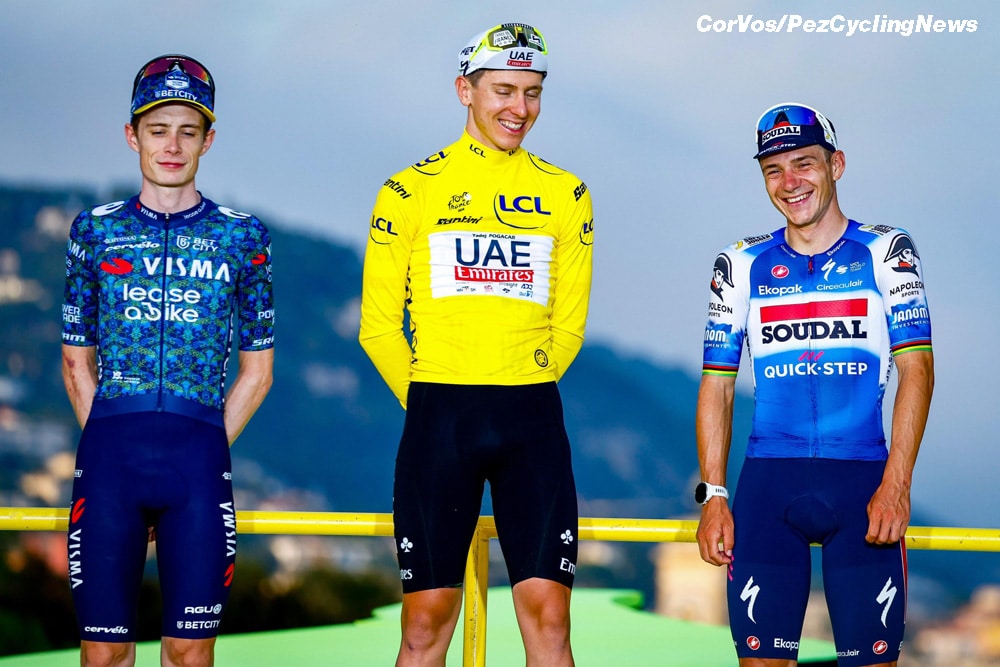
Top earners
The Kawhi Case: Difficulty of Enforcing Salary Caps
One topic that keeps heating up in pro cycling is the salary cap: by now, every astute follower of the men’s WorldTour suspects that a cap – in some form – is coming. The sport’s wealthiest teams are in a spending arms race to secure and lock down the most talented riders of the era into long-term deals with impossibly-high buyout clauses. This has stunted the distribution of talent – and contributed to waning fan interest as all the biggest races are seemingly won by a handful of top riders from the same top teams. A recent revelation from the NBA may give the UCI, teams, and riders pause to continue before implementing a cap. Two-time NBA Finals MVP Kawhi Leonard and his management team are alleged to have engineered a remuneration scheme with the Los Angeles Clippers to pay him $28 million dollars through a bogus sponsorship deal to circumvent the NBA salary cap; the forensic accounting and investigative reporting which uncovered the scheme could have wide-ranging impacts on professional sports. First, that the schemes exist at all has been confirmed, and multiple sports with collective bargaining salary agreements are likely to readdress the issue in future negotiations. Second, there is the question of whether the NBA will take action against the Clippers or Kawhi or both. Sports like cycling which have no true collective bargaining, and in which the riders are treated like independent contractors, may have an impossible task in tamping down this type of “under the table” spending if individual sponsors – as opposed to team sponsors – can flaunt any kind of cap rules by levering freedom-of-movement and personal rights laws to protect the personal earning power of the athletes. The Kawhi conundrum may not only lead to new rules within the NBA, but also inform pro cycling’s agents with new strategies to make any future cap impossible to enforce.
Cycling and Dementia
A new British report which tracked almost half a million subjects suggests that cycling is an effective way to reduce the likelihood of dementia. Although it is of course well-known that all forms of exercise are generally positively correlated with improved health and longer lifespan, in this particular study cycling was specifically associated with a greater volume of the hippocampus – that region of the brain responsible for memory and learning. Skeptics pointed out that although the two trends are positively correlated with each other, that doesn’t necessarily prove that cycling reduces the likelihood of dementia; older adults who cycle regularly are probably already a healthier subgroup, and may also serve as a marker of more favorable genetics. But as the article concludes, “cycling isn’t just good for the planet, your wallet and your fitness. Choosing this form of transportation for your errands instead of driving or taking the train may also help you prevent cognitive decline.”
# Check out the weekly commentary on pro cycling – and its context within the broader world of sports – with AIRmail … Analysis, Insight and Reflections from The Outer Line. You can subscribe to AIRmail here, and check out The Outer Line’s extensive library of articles on the governance and economics of cycling here. #
Like PEZ? Why not subscribe to our weekly newsletter to receive updates and reminders on what’s cool in road cycling?

